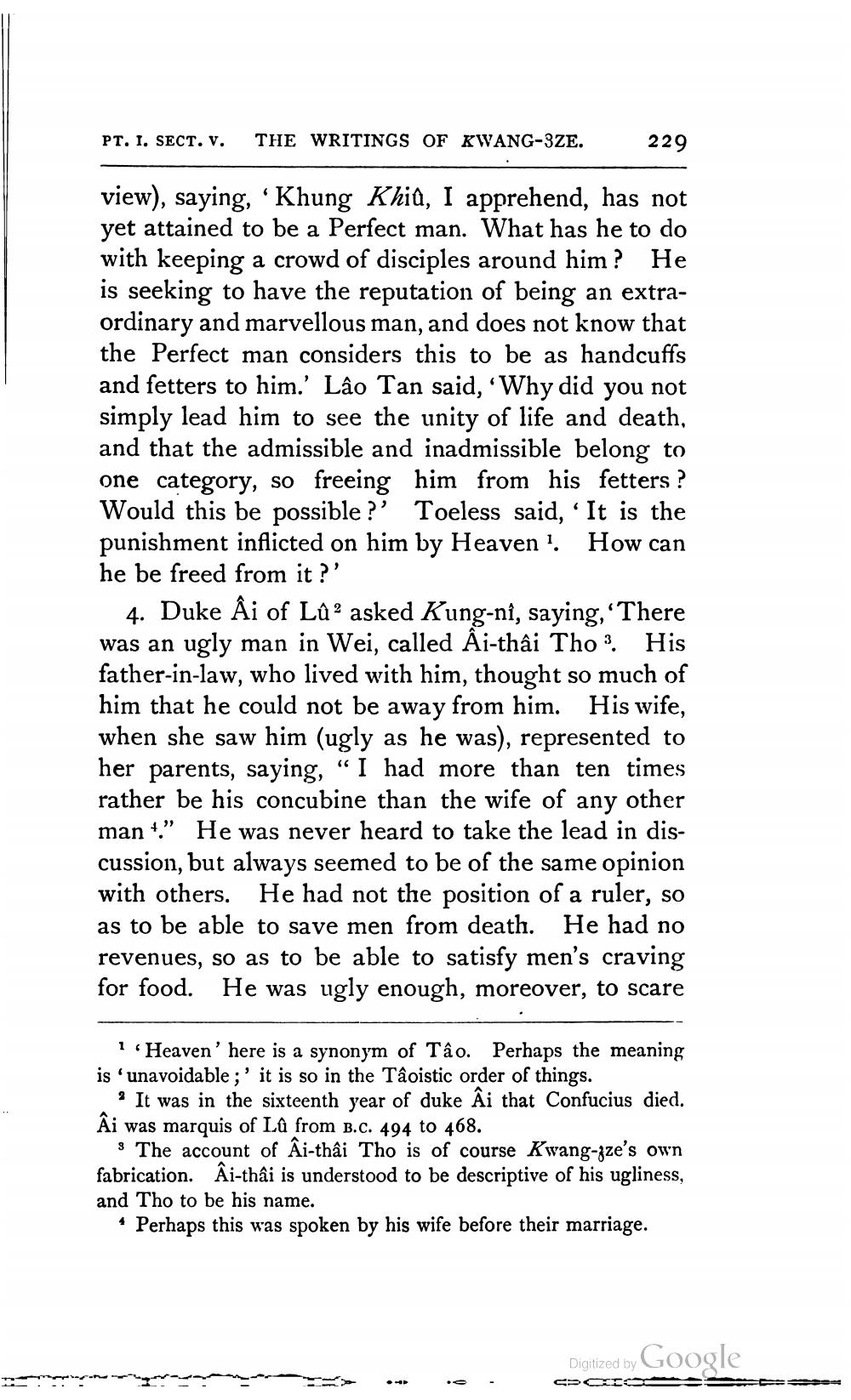________________
PT. I. SECT. V. THE WRITINGS OF KWANG-3ZE.
229
view), saying, 'Khung Khiû, I apprehend, has not yet attained to be a Perfect man. What has he to do with keeping a crowd of disciples around him? He is seeking to have the reputation of being an extraordinary and marvellous man, and does not know that the Perfect man considers this to be as handcuffs and fetters to him.' Lâo Tan said, 'Why did you not simply lead him to see the unity of life and death, and that the admissible and inadmissible belong to one category, so freeing him from his fetters? Would this be possible?' Toeless said, 'It is the punishment inflicted on him by Heaven 1. How can he be freed from it?'
4. Duke Âi of Lû2 asked Kung-nî, saying,‘There was an ugly man in Wei, called Ai-thâi Tho3. His father-in-law, who lived with him, thought so much of him that he could not be away from him. His wife, when she saw him (ugly as he was), represented to her parents, saying, "I had more than ten times rather be his concubine than the wife of any other man." He was never heard to take the lead in discussion, but always seemed to be of the same opinion with others. He had not the position of a ruler, so as to be able to save men from death. He had no revenues, so as to be able to satisfy men's craving for food. He was ugly enough, moreover, to scare
''Heaven' here is a synonym of Tâo. Perhaps the meaning is 'unavoidable;' it is so in the Tâoistic order of things.
2 It was in the sixteenth year of duke Âi that Confucius died. Âi was marquis of Lû from B.C. 494 to 468.
The account of Âi-thâi Tho is of course Kwang-zze's own fabrication. Âi-thâi is understood to be descriptive of his ugliness, and Tho to be his name.
4
Perhaps this was spoken by his wife before their marriage.
Digitized by Google
CCIO




